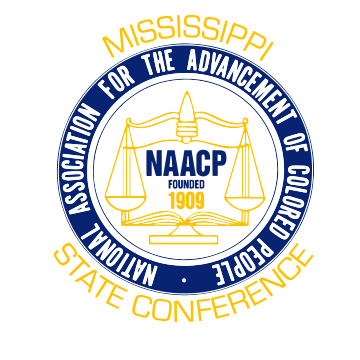Happy X Day? The Case Against a Federal Holiday for Malcolm X
2015/05/19 – Several scholars agree that a federal holiday would sanitize the legacy of a leader who fought fearlessly against state-sanctioned violence, imperialism and white supremacy.
There has been no federal holiday designated to honor Malcolm X, and on Tuesday, on what would have been his 90th birthday—in the midst of the continued devaluation of black bodies and the dismissal of black truth—the question on some people’s minds is: Should there be?
He was born May 19, 1925, as Malcolm Little but denounced his “slave name” when he joined the Nation of Islam in 1952. It was his rebirth as a Muslim minister and warrior for justice and human rights that shaped a generation of black revolutionaries in his image. His words on police brutality, systemic racism and capitalism could have been spoken this year, this month or even this day.
Some have called for the federal government to acknowledge his prophetic brilliance and unflinching radical black love, and while I agree with the sentiment, I can’t help thinking of what he wrote in a 1964 letter to the Egyptian Gazette less than one year before his death:
The common goal of 22 million Afro-Americans is respect as human beings, the God-given right to be a human being. Our common goal is to obtain the human rights that America has been denying us. We can never get civil rights in America until our human rights are first restored. We will never be recognized as citizens there until we are first recognized as humans.
There is no one who can convince me, as state-sanctioned violence, food insecurity, substandard health care and staggering unemployment rates continue to disproportionately target black Americans, that Malcolm would want to be “honored” by a country that does not first recognize and preserve the sanctity of black lives—or by a country that has yet to acknowledge the alleged role it played in his death.
“I can’t think of anyone I know who would support [a federal holiday],” said Jared Ball, an activist and associate professor of media studies at Morgan State University. “It’s more than problematic. It’s propagandistic and shameful.”
As my elders in Mississippi used to say, stop him when he’s lying. My resistance to symbolism as a means of concealing a paucity of substance is well-documented, and I stand by my belief that we need to reassess how we view honor—or, more specifically, how we view being honored by the United States.
It feels as if some of us believe that we need the stamp of approval from our government to feel assured of our own humanity. I wonder why that is, when we were brought here as chattel to increase white America’s capital. I wonder why some of us feel insignificant if the same pomp and circumstance that is used to honor war criminals and slave owners and morally bankrupt colonizers and imperialists—also known as U.S. presidents—is not bestowed upon us. And I wonder why some of us still hope that some token gesture is the foreshadowing of systemic change that will positively impact the conditions and lived experiences of black Americans.
“It certainly behooves us to commemorate the legacy of his teachings as they persist in their potent relevance in times of state-sanctioned terror,” Maytha Alhassen, a University of Southern California provost Ph.D. fellow and journalist, said to The Root. “But a Malcolm X federal holiday is about as compatible with his legacy as Harriet Tubman replacing Andrew Jackson on the $20 bill. Malcolm was the sharpest at identifying U.S.-sponsored liberal multicultural tokenism for what it was: ‘An integrated cup of coffee isn’t sufficient pay for 400 years of slave labor.’
“How comfortable is the American state with the idea of educating its youth and citizenry why they have a day off of labor and school?” continued Alhassen, who is also a research assistant on the Malcolm X Project and recently co-organized a black social-justice delegation to Palestine. “How far would they sanitize the legacy of Malcolm to fit within the confines of liberal American triumphalism?”
Exactly. How would they honor him? When he is co-opted by corporations hoping to prove solidarity with African Americans, what quotes will they use? Will they talk about how he said that we “can’t have capitalism without racism”? Will they talk about his vehement opposition to Zionism and its disastrous effects on Palestine, while this country remains in bed with Israel? Will they quote him on police brutality, or will they cherry-pick his positions in an attempt to paint him as nonthreatening to white supremacy, when the complete opposite was true?
This country doesn’t broaden or diversify the narrative of our collective history in any authentic way. What we’ve experienced is the massaging of revolutionary legacies until they fit smoothly within a preapproved context that dilutes the power of black resistance. It is that potential for sanitization that troubles Imani Perry, a professor of African-American studies at Princeton University and the author of More Beautiful and More Terrible: The Embrace and Transcendence of Racial Inequality in the U.S.
“We’ve seen that the manner in which black political activists and leaders have been remembered in federal celebrations has often sanitized them beyond recognition,” Perry said to The Root. “We can look to the example of Martin Luther King Jr. and how, the last three years of his life, his critiques of imperialism and capitalism and economic domination have been erased from public memory. Once upon a time I might have easily said it’s meaningful simply for his significance to be acknowledged by the larger society. But now I think the distortions, which tend to serve a rather vapid conception of multiculturalism rather than anything like racial justice, are perhaps worse than the absence of recognition altogether.
“On the other hand, I do think it is meaningful for black children in particular to have multiple opportunities to encounter these important historical figures, in books, in art, in class, but also in the landscape of their country,” Perry continued. “Ultimately, my greatest preference is for all of us who believe in freedom to continue to read and listen to Malcolm, to share him in community, beyond whatever the federal government intends to do with his legacy.”
Alhassen echoes Perry’s sentiments, pointing out that “we have collectively remembered Malcolm through our festivals in Oakland[, Calif.], on bus rides from 125th Street in Harlem to his physical resting place in Ferncliff Cemetery, in our [Kendick] Lamar and Tupac joints, and even now on our Instagram postings.”
The question remains, then: Is that enough? Are we enough? And if the answer is no, then perhaps the first step to honoring Malcolm should be learning to love ourselves enough that we don’t waste any time waiting on this country to love us back.
Source: The Root Magazine



